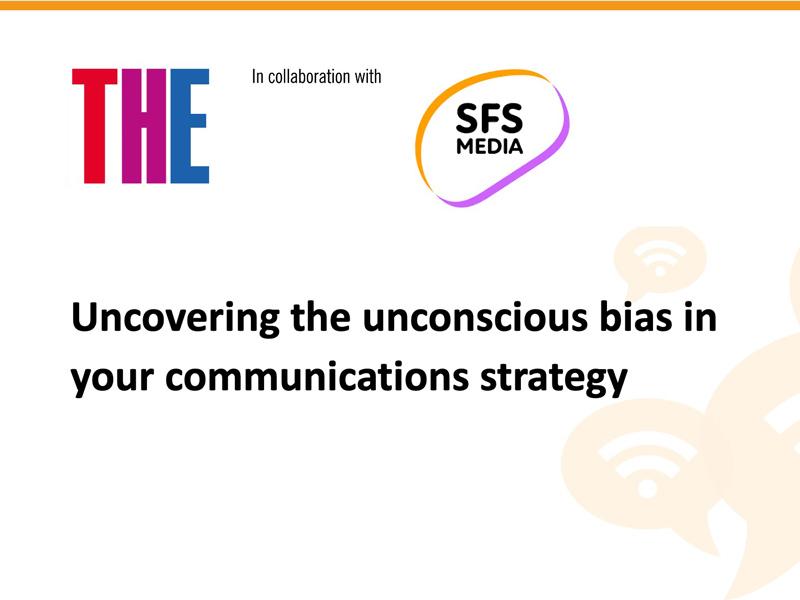Sexual misconduct in surgery is not new and is not solved. And yet, awareness of it has never been greater. The Working Party on Sexual Misconduct in Surgery (WPSMS), a group of surgeons, clinicians and academic researchers, needed data to be able to knock on the doors of the powerful to bring about change. We worked together, deciding what data we needed to collect, and kept a scientific mindset to effect change to make healthcare safer for everyone. And now, data are proving to be a pivotal factor in addressing the problem.
The impact of our research
On the day of publication in the British Journal of Surgery (BJS), the WPSMS research hit The Times’ front page and was the talk of every theatre tearoom.
There was justified public horror at the realisation that sexual assaults were happening in operating theatres, where vulnerable anaesthetised patients assumed that they would be kept safe.
- Spotlight guide: THE Awards 2024: learn from the best in UK and Irish higher education
- Despite positive steps, much remains to be done on sexual misconduct
- Institutionalising gender equality work within a university
Our data had shown that sexual harassment was widespread, with a third of the women surveyed having been sexually assaulted by a colleague in the past five years. Some of these criminal acts occurred while surgery was taking place.
Why does this matter?
At its most simple, if a surgical trainee is being indecently assaulted while she (it is usually a woman) is operating in close proximity to her supervisor, it is fair to say that neither she nor he (and it is usually a man) is concentrating on the person lying unconscious on the operating table in front of them. There is also a wealth of evidence showing that dysfunctional surgical teams have poor outcomes and that doctors who are harassed are less able to do their jobs well. Ultimately, sexual misconduct is a risk for patient safety.
The journey to carrying out the research was several years long and often bumpy. Our group had no funding and was fuelled by being committed, like-minded, mutually supportive and outcome focused. Having a regular weekly evening meeting for several months, where everyone was listened to and there was little hierarchy, enabled us to finesse ideas in a space of psychological safety – an unfamiliar culture in the surgical world that most of us in the WPSMS inhabit.
Early barriers put in our way enabled us to work out what the important data would be to effect change. We needed to know how often these events were happening, particularly recently, how the system was dealing with them when they did, and what the workforce thought of the adequacy of the accountable bodies such as the General Medical Council (GMC) and the NHS in dealing with this issue.
A survey was circulated in the autumn of 2022 with help from key stakeholders, including surgical royal colleges.
The WPSMS had vital input from its academic psychology lead, Chris Begeny from the University of Exeter.
In January 2023, Chris shared the survey findings with the group and a number of trusted allies.
Many of us in the room had spent decades as women in surgery, and some had been significantly personally impacted. Yet, we were individually and collectively shocked – but not surprised – at the scale of recent misconduct, and deeply moved by the heartfelt stories participants had shared with us. We were also struck by the huge differences in the differing realities of men and women, with far fewer men not only being impacted but also declaring that they had witnessed sexual misconduct. This information felt key to the educational interventions that would be required in a predominantly male workforce.
We presented the data under embargo to stakeholders four months before publication. By bringing expertise together to formulate solutions in collaboration, the powerful were brought into the conversation. After all, they were the ones who would be able to make the systemic shifts required.
We increasingly learned to be effective by remaining scientifically driven, controlling our use of adjectives and repeatedly asking: “What can we all do to make healthcare safer for the workforce, and ultimately safer for the patients we look after?”
Engagement with the media was key, as was timing. Prior to our publications, both NHS England and the GMC, who knew their performance in dealing with sexual misconduct was evaluated as inadequate by most of the workforce in our survey, announced major changes to address this issue.
The BJS research publication was accompanied by the simultaneous release of the Breaking the Silence report in September 2023. The report drew on the data and contained personal stories outlining the culture of impunity surrounding often powerful perpetrators. These testimonies demonstrated why official reporting was rare. Many of those impacted described carrying lasting guilt at not having spoken up for fear of loss of their own career and knowing that their perpetrator remained in post, harming others. They portrayed the damaging long-term human impact of being targeted and of not getting justice.
With both publications dropping at the same time and media allies poised for the story to land, attention was intense, with politicians, wider healthcare and the public they serve promising and demanding action.
What we’ve achieved
So how did we keep minds and hearts focused?
Our recommendations in Breaking the Silence were few and, we hoped, achievable, with prospective data collection a pivotal point. NHS England staff are now asked on a yearly basis if they have been subject to unwanted behaviour of a sexual nature, and this information is now public, with the scale of sexual misconduct in individual NHS trusts visible.
The GMC now also finds out similar information from trainees. Unsurprisingly, women in surgery, particularly those in more junior positions, are most likely to experience sexual misconduct. These data provide corroboration of former research, provide a benchmark and give ongoing incentive to poorly performing organisations to manage the problem more effectively. The Care Quality Commission, which regulates healthcare providers and provides quality ratings, rightly sees this as a patient safety issue. In September 2024, the GMC released a further update of guidance for the medical profession.
On 16 October 2024, at the WPSMS meeting at the Royal College of Surgeons, the NHS announced plans for anonymous reporting and access to independent investigations, two of our key recommendations. Baroness Merron, parliamentary under-secretary of state for patient safety, women’s health and mental health, attended and reiterated the need for systemic change to solve this critical issue. A new duty on employers to prevent sexual harassment in the workplace became law on 24 October.
Next steps
We are often asked: “Yes, but how do you change the culture?” with a head tilt of concern, and a passive acceptance that cultural change, especially around the behaviours of powerful people in a steep and often toxic hierarchy, is in the “too difficult” box.
We are often faced with wilful blindness, where smart people deny the obvious, for reasons of fear and for organisational and self-protection.
Addressing this issue is a moral and professional obligation for everyone involved and matters for all of us. There is an emerging expectation that those with power to make a difference will no longer be able to turn a blind eye, that the availability of comparable annual data will enable progress to be tracked, and the avoidance of accountability and responsible leadership will no longer be tolerated.
Carrie Newlands is lead for clinical skills at the School of Medicine at the University of Surrey. The university was shortlisted in the Research Project of the Year: Arts, Humanities and Social Sciences category in the 2024 THE Awards. A full list of nominees can be found here.
If you would like advice and insight from academics and university staff delivered direct to your inbox each week, sign up for the Campus newsletter.




comment